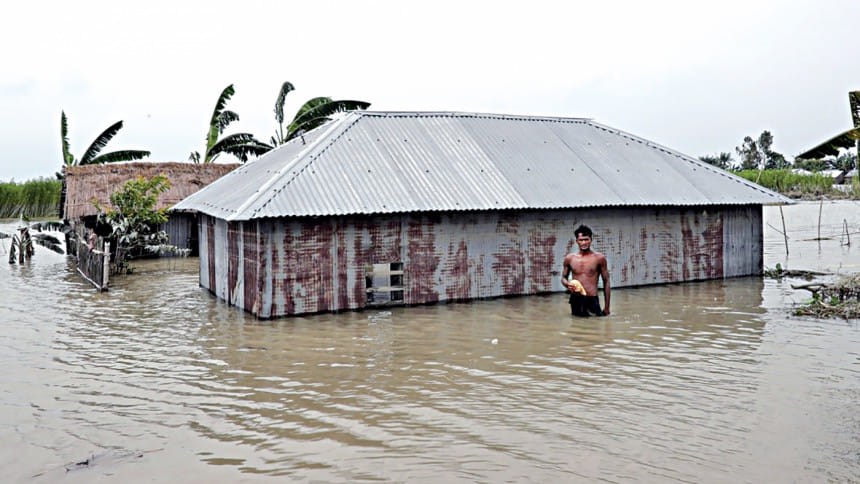Economics of climate change should dictate policies

What is now urgently required is very large-scale, immediate transformation to set a course to reach a net-zero emission in the future by limiting the temperature rise to 1.5-degree Celsius.
Many economists, including Sir Nicholas Stern and Joseph Stiglitz as well as climate pundits argue that a major ramp-up of national commitments in 2020 is essential to keep the Paris Agreement’s goals within reach. They also see lot of opportunities, very positive returns and benefits. Countries will benefit from enhancing their nationally determined contribution (NDC) in other ways as well, including helping achieve the Sustainable Development Goals (SDGs) and alert public finance institutions and donors of major investment opportunities.
Under the 2015 Paris Agreement every country, developed or developing, rich or poor, agreed to prepare and communicate an updated NDC every five years, showing progress toward its highest possible ambition. Countries are now preparing to submit new or updated NDCs by 2020.
In order to fulfil the ambition, the UN Secretary General has convened the Climate Action Summit in New York next week. This summit is for galvanising global political momentum to deliver much stronger national climate plans at this key moment and just ahead of the 25th Conference of Parties (COP 25) in Santiago in December.
The United Nations Development Programme and the World Resources Institute on September 18, 2019 released a joint publication titled “Enhancing NDCs: A Guide to Strengthening National Climate Plans” to help assist the crucial UN process. It is designed to help practitioners think how to structure a country’s NDC across three dimensions: strengthening targets to reduce emissions (mitigation), enhancing climate resilience (adaptation), and clearly communicating their actions to build trust and facilitate effective implementation.
Apart from this guidance, there are also some resources for countries to enhance national climate plans under the Paris Agreement. Some countries have committed to strengthening their NDCs in 2020, but many others, including Bangladesh, are yet to revise it.
Another interesting joint report styled “The Heat is On: Taking Stock of Global Climate Ambition” was also released on September 18 by the UNDP and the UNFCCC, offering the most comprehensive assessment to date on the world’s climate ambitions.
It shows huge ambition gap to reach the global goal on both mitigation and adaptation.
The Global Adaptation Commission, led by UN former secretary general Ban Ki-moon, in its report published on September 11 has also shown investing $1.8 trillion in adaptation in five key sectors from 2020 to 2030 could generate $7.1 trillion in total net benefits. As a lead climate negotiator for LDCs for many years, I have also argued that the cost of adaptation is on the rise but socio-economic benefits are manifold although adaptation has also limits.
Now the trillion dollar question is how to take advantage of the opportunities across a range of areas, including power, forests, oceans, agriculture, transportation and short-lived climate pollutants. How Bangladesh and many other least developed countries (LDCs) and developing countries would like to seize the opportunities and mount pressures on industrialised countries to cut back their greenhouse gas emissions is a huge challenge.
As a lead author of the Bangladesh Climate Change Strategy and Action Plan 2008, updated in 2009, I know that this flagship document is now being revised. The inception workshop to formulate the Bangladesh National Adaptation Plan (NAP) based on the Bangladesh National Adaptation Programme of Action 2005, revised in 2009, is all set to be held next month. I hope the NAP would be prepared in a participatory consultative process involving all major stakeholders, sectors and regions.
I think economics of climate change should dictate our policies at national level as well as global level to help rescue nations from current climate emergency.
The author is a sustainable development, climate and environment specialist, a former chair of the UN Kyoto Protocol Joint Implementation Committee, and a member of the UN Adaptation Committee. He can be reached at [email protected].

 For all latest news, follow The Daily Star's Google News channel.
For all latest news, follow The Daily Star's Google News channel. 



Comments